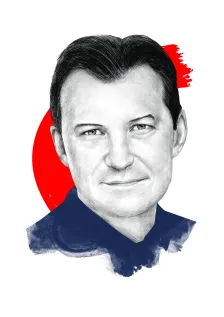Israel’s surprising strike against Hamas leaders in Qatar this week was the latest indication that the second Trump administration has fallen well short of its aspirations of ending the Gaza war.
Speaking on Thursday afternoon, more than three days after the strike, US President Donald Trump expressed a vague hope for diplomacy: “I hope the Israeli attack in Qatar does not affect the negotiations for the release of the hostages and the ceasefire in Gaza. We want to get the hostages out, and we want it to happen soon.”
One of the most curious aspects of the second Trump administration’s approach to the Middle East is the striking passivity in how it has approached the Gaza war. “Passive” is a word that many do not associate with Trump, in part because of the frenetic pace of words and deeds coming from this White House on any given day.
Trump has a penchant for making provocative, attention-grabbing statements like his notion of America taking full control of the Gaza Strip and creating a magical “Gaza Riviera.” In addition, Trump often takes made-for-television targeted actions like June’s one-night lightning bombing attack in Iran and this month’s strike against suspected drug runners from Venezuela. But don’t mistake these moves as anything approximating a coherent strategic approach to produce lasting results on any of these files.
On the Israeli-Palestinian front, Trump has talked a big game about getting hostages home and ending the conflict. But the reality is that Trump has allowed Israel to proceed as it chooses, even though Israel’s unpredictable actions have unsettled the region.
Actions by Israel in Gaza and around the region have moved Trump further away from one of his biggest aspirations: receiving the Nobel Peace Prize for the Israel-Saudi normalisation deal he wants so badly. But as of yet, there’s no strategic shift for US policy on the Arab-Israel issue on the horizon.




